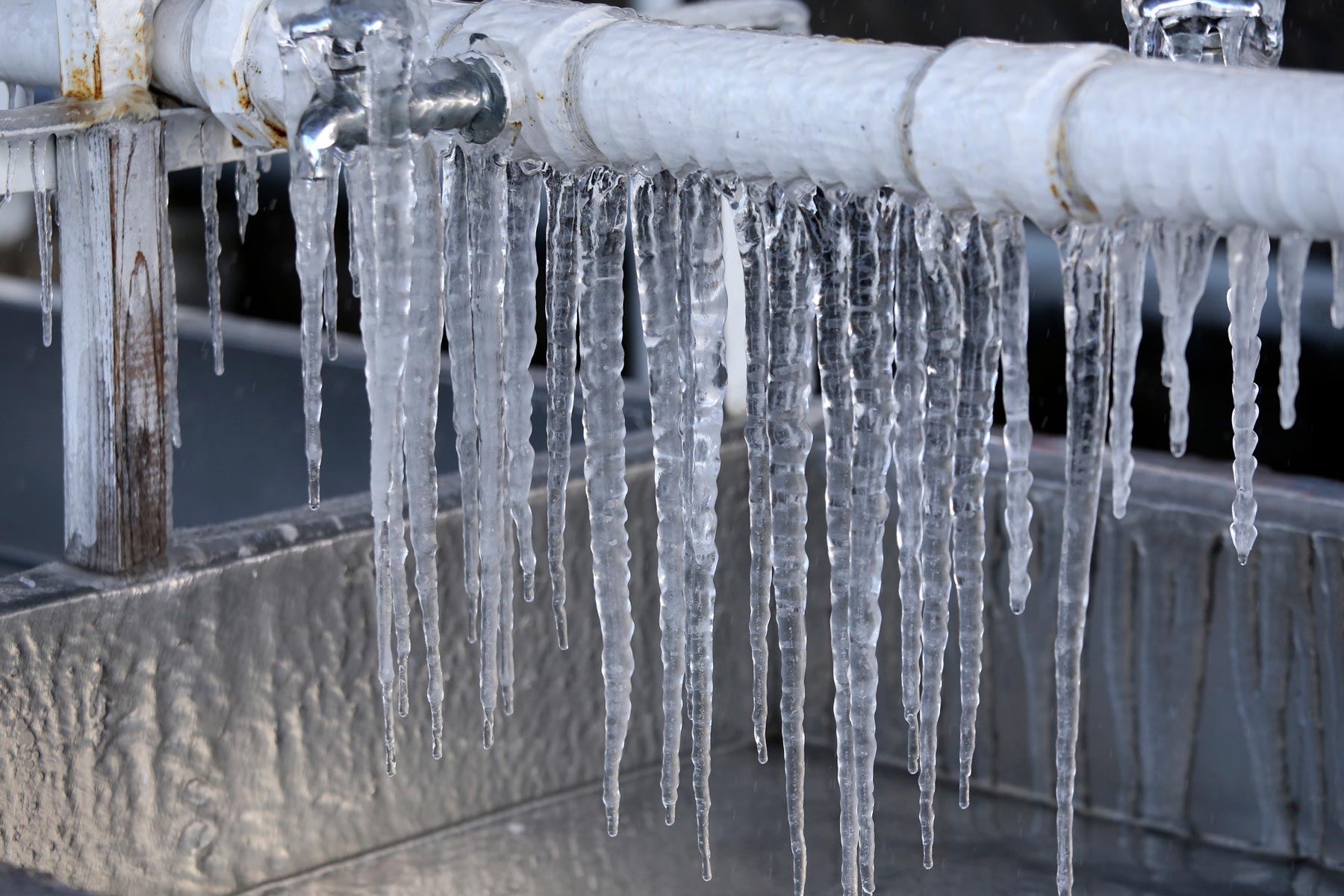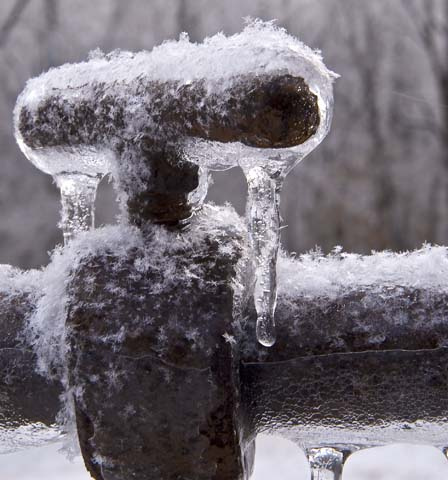Critical Approaches for Preventing Frozen Pipes in Winter
Critical Approaches for Preventing Frozen Pipes in Winter
Blog Article
Any individual has got his or her own views on the subject of Prevent Frozen Pipes .

Cold weather can ruin your plumbing, specifically by freezing pipes. Below's just how to stop it from occurring and what to do if it does.
Intro
As temperatures decrease, the risk of frozen pipelines rises, potentially causing expensive repair work and water damage. Understanding just how to stop icy pipelines is critical for house owners in cold climates.
Prevention Tips
Insulating prone pipes
Wrap pipes in insulation sleeves or use heat tape to protect them from freezing temperature levels. Focus on pipelines in unheated or outside areas of the home.
Home heating methods
Maintain interior rooms effectively heated, specifically areas with pipes. Open up cabinet doors to permit warm air to distribute around pipelines under sinks.
How to determine icy pipelines
Search for reduced water circulation from taps, unusual odors or noises from pipelines, and noticeable frost on revealed pipes.
Long-Term Solutions
Structural modifications
Think about rerouting pipelines far from outside wall surfaces or unheated locations. Include added insulation to attic rooms, cellars, and crawl spaces.
Upgrading insulation
Buy high-grade insulation for pipes, attic rooms, and walls. Appropriate insulation helps preserve regular temperatures and minimizes the risk of frozen pipelines.
Shielding Outdoor Pipes
Yard hoses and outside taps
Separate and drain pipes garden hose pipes prior to winter months. Set up frost-proof faucets or cover exterior taps with shielded caps.
Recognizing Icy Pipes
What triggers pipes to ice up?
Pipes ice up when revealed to temperatures below 32 ° F (0 ° C) for extended periods. As water inside the pipelines freezes, it expands, taxing the pipeline walls and possibly causing them to burst.
Dangers and damages
Icy pipes can cause water system disruptions, property damage, and costly fixings. Ruptured pipes can flood homes and trigger extensive architectural damages.
Signs of Frozen Pipeline
Determining frozen pipes early can avoid them from rupturing.
What to Do If Your Pipes Freeze
Immediate actions to take
If you think icy pipelines, maintain faucets open up to soothe stress as the ice melts. Make use of a hairdryer or towels soaked in warm water to thaw pipelines slowly.
Final thought
Protecting against frozen pipes calls for proactive procedures and fast reactions. By recognizing the causes, indications, and safety nets, homeowners can safeguard their plumbing throughout winter.
Helpful Tips to Prevent Frozen Pipes this Winter
UNDERSTANDING THE BASICS: WHY PIPES FREEZE AND WHY IT’S A PROBLEM
Water freezing inside pipes is common during the winter months, but understanding why pipes freeze, and the potential problems it can cause is crucial in preventing such incidents. This section will delve into the basics of why pipes freeze and the associated problems that may arise.
THE SCIENCE BEHIND FROZEN PIPES
When water reaches freezing temperatures, it undergoes a physical transformation and solidifies into ice. This expansion of water as it freezes is the primary reason pipes can burst. As the water inside the pipe freezes, it expands, creating immense pressure on the walls. If the pressure becomes too great, the pipe can crack or rupture, leading to leaks and water damage.
FACTORS THAT CONTRIBUTE TO PIPE FREEZING
Low Temperatures: Extremely cold weather, especially below freezing, increases the risk of pipes freezing. Uninsulated or Poorly Insulated Pipes: Pipes located in unheated areas, such as basements, crawl spaces, or attics, are more prone to freezing. Insufficient insulation or lack of insulation altogether exacerbates the problem. Exterior Wall Exposure: Pipes running along exterior walls are susceptible to freezing as they encounter colder temperatures outside. Lack of Heating or Temperature Regulation: Inadequate heating or inconsistent temperature control in your home can contribute to frozen pipes. PROBLEMS CAUSED BY FROZEN PIPES
- Pipe Bursting: As mentioned earlier, the expansion of water as it freezes can cause pipes to burst, resulting in significant water damage.
- Water Damage: When pipes burst, it can lead to flooding and water damage to your property, including walls, ceilings, flooring, and personal belongings.
- Structural Damage: Prolonged exposure to water from burst pipes can compromise the structural integrity of your home, leading to costly repairs.
- Mold and Mildew Growth: Excess moisture from water damage can create a favorable environment for mold and mildew growth, posing health risks to occupants.
- Disrupted Water Supply: Frozen pipes can also result in a complete or partial loss of water supply until the issue is resolved.
WHY CERTAIN PIPES ARE MORE PRONE TO FREEZING
- Location: Pipes located in unheated or poorly insulated areas, such as basements, crawl spaces, attics, or exterior walls, are at higher risk of freezing.
- Exterior Pipes: Outdoor pipes, such as those used for irrigation or exposed plumbing, are particularly vulnerable to freezing as they are directly exposed to the elements.
- Supply Lines: Pipes that carry water from the main water supply into your home, including the main water line, are critical to protect as freezing in these lines can affect your entire plumbing system.
- Underground Pipes: Pipes buried underground, such as those connected to sprinkler systems or outdoor faucets, can be susceptible to freezing if not properly insulated.
https://busybusy.com/blog/helpful-tips-to-prevent-frozen-pipes-this-winter/

I'm just very focused on Prevent Frozen Pipes and I really hope you appreciated our article. Appreciated our piece? Please share it. Help other people locate it. Thanks so much for taking the time to read it.
Go Deal Report this page